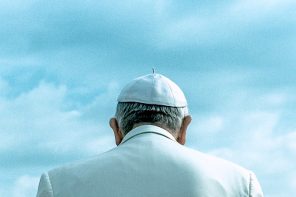In the wake of the startling revelation that well over 200 boys were abused over a 40-year period in a Bavarian choir conducted for 30 of those years by the Rev. Georg Ratzinger, the brother of former Pope Benedict, many questions remain unanswered about exactly what the Ratzinger brothers knew and when.
The lawyer who disclosed the abuse after an investigation commissioned by the Diocese of Regensburg said he assumes that Georg Ratzinger was aware of what one survivor called “a system of sadistic punishments connected to sexual pleasure” meted out by Johann Meier, the head of the school that housed the choir. Less clear is what Joseph Ratzinger knew, either during his time as the Archbishop of Munich or after 1981, when he became Pope John Paul II’s right hand man as the head of the powerful Congregation for the Doctrine of the Faith.
What is clear is that Ratzinger’s tenure at the CDF, including the period which coincided with the last decade of the abuse (Meier died in 1992), was marked by an energetic punishing of his own—of liberal Catholics who challenged John Paul’s conservative orthodoxy on sexuality. Numerous theologians, priests and nuns who supported liberal interpretations of church teaching were disciplined by “God’s Rottweiler” for their transgressions.
For instance, in 1986, Ratzinger stripped renowned progressive theologian Father Charles Curran of his right to teach at Catholic universities because he held it was possible to dissent from non-infallible church teachings, especially those on abortion, contraception and homosexuality.
That same year, Ratzinger stripped Seattle Archbishop Raymond Hunthausen of much of his authority after he allowed gay Catholics to celebrate mass at St. James Cathedral and allowed Catholic hospitals in his diocese to perform contraceptive sterilizations. Shortly thereafter, Ratzinger declared homosexuality an “intrinsic moral evil.”
At the same time, as Alexander Stille noted in The New Yorker, “As the second-most-powerful man in John Paul II’s pontificate, Ratzinger had more ability to know and to act than almost anyone” on the brewing sex abuse scandals, particularly those involving Father Marcial Maciel, the cult-like founder of the Legionaries of Christ who was credibly accused of the molestation of multiple seminarians over several decades.
But as head of the CDF, Ratzinger largely turned a blind eye to the growing chorus of complaints about sexual abuse. It wasn’t until the scandals exploded late in the papacy of John Paul and threatened to overwhelm his own papacy that Benedict finally took action.
In that light, it’s hard not to see Ratzinger’s disciplining of those with a progressive sexual ethic as a desperate—if unconscious—attempt to quell the stench of scandal emanating from inside his own church. In 1989, the year that Father Juan Vaca sent a second dossier to the Vatican detailing his abuse (and the abuse of other seminarians at the hands of Maciel), Ratzinger’s highest profile move was to issue a controversial directive telling progressive theologians they had no right to dissent publicly from church teaching. It’s as if by insisting on the most rigid possible interpretation of the rules regarding sex, he could somehow cleanse sins that he didn’t want to acknowledge.
For his part, Georg admits he had long heard complains of physical abuse, and that he himself sometimes slapped underperforming boys, but said he considered it normal at the time. “I did not have the feeling at the time that I should do something about it,” he said. “Had I known with what exaggerated fierceness he was acting, I would have said something.”
Ratzinger turned a blind eye to reports of abuse in the choir under his direction just as his brother did in the church at large because they believed that those who professed orthodoxy were somehow immune from sexual sin and that discipline was the path to righteousness.
While the church has acknowledged the shortcomings of its past polities regarding abuse, the problem remains far from solved. Pope Francis has been criticized for the slow pace of his promised reforms and for appearing to have more sympathy for the bishops than the victims. The group Catholic Whistleblowers this week accused the U.S. Conference of Catholic Bishops of reneging on its commitment to a “zero tolerance” policy regarding abusive priests and has asked the Vatican to intervene.
But until the Vatican acknowledges the extent to which progressives were scapegoated to mask the church’s own unresolved incongruences regarding sex, asking it to police anyone on abuse may be wishful thinking.




